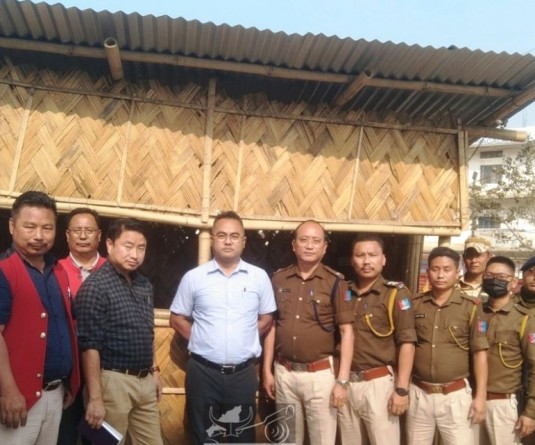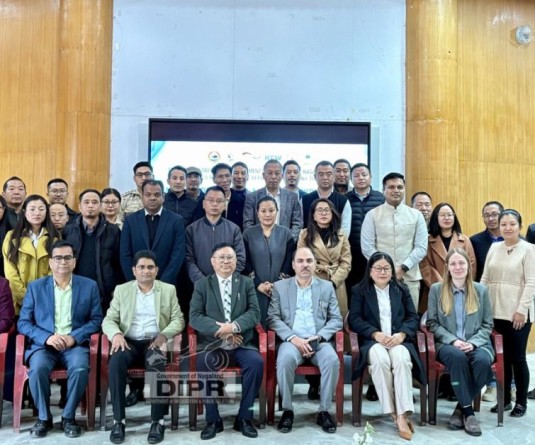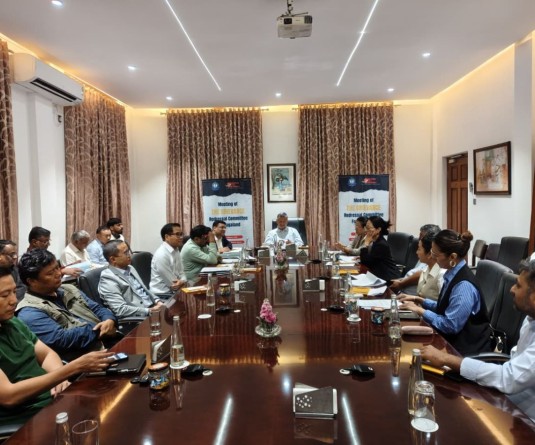Representational Image.

Dimapur police cite violations by car dealers, realtors; media told not to promote unlawful schemes
Morung Express News
Dimapur | May 2
Dimapur Police have issued a warning against the growing trend of unauthorized “lottery-style” promotional schemes, particularly among second-hand car dealers and real estate agents in the state’s commercial hub of Dimapur and its adjoining districts.
In a press release dated May 2, the Commissioner of Police, Dimapur, Kevithuto Sophie, IPS, stated that there has been an alarming increase in illegal lottery activities, especially in Dimapur, Chümoukedima, and Niuland. These include schemes under the guise of “lucky draws,” “bumper offers,” and other forms of promotional contests that, the police said, violate state government orders and India's legal framework governing games of chance and public lotteries.
According to the Commissioner, these unauthorized promotions are often used to “lure unsuspecting customers, create artificial hype, and manipulate purchasing decisions”, practices he described as both “deceptive and illegal.” Despite prior police actions, such schemes persist, prompting the department to reiterate legal consequences and issue an urgent advisory to the public, businesses, and media platforms.
“Business establishments, real estate agents, organizations, unions and individuals are advised to immediately cease such activities to avoid legal consequences,” the Commissioner warned.
The police reminded the public that Nagaland prohibits the sale of badges, coupons, and calendars except those officially sponsored by the government, and that lottery activities are banned unless conducted with express permission from the State Government. It further urged media houses—print, electronic, digital, and social—not to advertise or promote such schemes, cautioning that doing so could also invite legal action.
The police press note cites several underlying directives, notably a standing order from the Home Department and previous departmental actions. Reinforcing this enforcement drive, a separate order issued a few days earlier by Deputy Commissioner of Niuland, Sara S Jamir, provided further legal and procedural clarification across the district.
In her directive, issued in coordination with the Home Department, Jamir observed that all forms of donations—lotteries, coupon and badge sales, calendar sales—are causing “great inconvenience to the public at large.” The order lays down the following guidelines:
• Annual fete day or sales day permissions shall be granted only to well-established organizations functioning within the district, with a specified date and location.
• Door-to-door sales are banned in all circumstances.
• Sales of badges, coupons, and calendars are totally banned, except for government-sponsored events like Teachers’ Day and Armed Forces Flag Day.
• Conducting of lotteries is completely banned, except for recognized organizations involved in charitable activities, who must submit applications through the Deputy Commissioner to the Home Department.
Jamir cautioned that violation of these rules would invite “strict action under relevant sections of the law.”
Legal Framework
While the Nagaland government allows state-run lotteries under the Lotteries (Regulation) Act, 1998, it has long banned private and unauthorized lotteries or games of chance. Under this law, a “lottery” is defined as any scheme for distributing prizes by chance to persons who participate by purchasing tickets.
The Lotteries Act, in Section 4 and 5, allows state governments to organize lotteries, but also gives them the power to prohibit them. The Act does not allow private individuals or businesses to run lotteries without government sanction. Furthermore, Section 294A of the Indian Penal Code (IPC) criminalizes the operation or advertisement of unauthorized lotteries, punishable by up to six months imprisonment or fine.
Additionally, the Consumer Protection Act, 2019 bans any promotional scheme that qualifies as a “lottery” or “game of chance” linked to the sale of goods or services, considering them unfair trade practices.
Mushrooming Schemes
The current crackdown follows months of rising concern in Nagaland over the mushrooming of “bumper draw” and “gift with purchase” schemes, particularly among second-hand car dealers and real estate agents, as identified in the Dimapur police notice. These schemes have become increasingly prominent on social media platforms, YouTube, and through influencer-driven marketing.
In recent months, controversies have surfaced across the state over the legitimacy of such raffle draws. Several individuals who purchased these tickets have taken to digital platforms to allege manipulation and foul play when the time came to announce winners. The accusations typically involve claims that organisers either quietly change results or never follow through with prize announcements. While these complaints have circulated widely on social and digital media, there have been no public confirmations from law enforcement on whether any formal investigations have been launched. So far, police actions have been limited to notices and warnings, with no public disclosure on accountability or prosecution in connection with the alleged irregularities.
Although the recent notices do not name specific businesses, platforms, or individuals, the police said that any promotion or advertisement of such unauthorised schemes—regardless of medium—is illegal and could result in legal action.
Legal expert Vidushpat Singhania, Managing Partner at Krida Legal, noted in a 2018 India Today article that “lucky draw schemes may fall foul of the Lotteries (Regulation) Act, 1998 and the Consumer Protection Act, 1986,” especially when tied to consumer purchases or monetary contributions. Such schemes, he cautioned, blur the line between promotional activity and gambling, and could be deemed unlawful depending on their structure.





